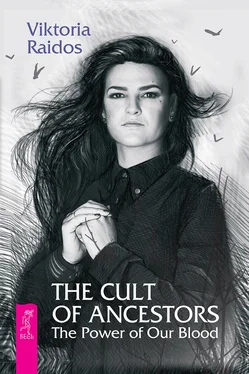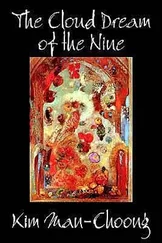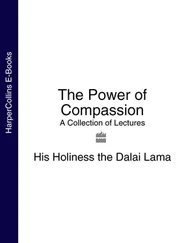The universe makes no mistakes when it creates the very specific conditions into which each of us are born. Everybody has a time when the universe checks how well this person has learnt their life lessons. These are the trials that an individual needs to go through to reach a new level or to confirm being on the level that they deserve. One of these trials can be working through family karma. Maybe in one of your previous incarnations you created this karmic knot yourself, leading to these present family complications. Your task is then to work on your mistake, resolving it or being punished by it. It is very complicated – almost impossible – to step out of this family programming by just wishing it. You can only cure the problems. And there was always someone who was the first one to do something for the first time.
So it might be you, the first ‘strong one’ in your family line who will change the whole family line for the better?

The Cult of Ancestorsforms the foundation of all religions and spiritual teachings. It could even be considered as a ‘family religion’ because it is the veneration of deceased ancestors of one particular family. The spirits of a family are the inhabitants of another world who, by default, are friendly towards their descendants and are ready to assist them. As the main protectors of the family, they are able to give their living relatives help and protection with all the power that spirits possess. The main thing here is to be able to accept this help. And this is exactly what one learns by carrying out rituals of venerating ancestors – the correct behaviours and attitudes towards one’s family line.
The cult of venerating ancestors is a whole worldview in which an individual is part of a harmonious world system and part of nature. This knowledge would keep us from making many mistakes and give us much value.
A great importance of ancestors can be understood just from some knowledge of biology. Our ancestors are present – or, it could be said, resurrected – in us as genes. We are made from their flesh and blood. Everything experienced by them – actions, sensations, thoughts – comes to us and then to our children. And we should pay our respects to our ancestors for at least surviving and giving us the gift of life. If it were not for them, there would be no us.
A human is not only a biological creature. People rely not only on their instincts, but also place great significance on culture, which is the main system through which we transfer our experience to our descendants. This exists on a level of universal human culture, as well as on the levels of one individual and those close to them. The culture of venerating ancestors is something that connects people. Despite any one belief system, you are someone’s descendant, and – if you are lucky – someone’s ancestor.
How do dead ancestors help their living relatives? At the moment, there is no scientifically proven explanation of the workings of the Cult of Ancestors.
We can only use it as a practical tool to get results, but not fully understanding exactly how it functions. Whether this informational and energetic connection is created through a genetic code or any other way, we simply do not know anything specific so far.
The same occurs not only in the esoteric, but in another science that studies the human soul, psyche and behaviour – psychology. The method of ‘systemic family constellations’, for example, is a psychological principle that was discovered at the end of the twentieth century by Bert Hellinger. In this method, the history of a client’s family is described as a system that works according to particular laws. The constellation itself happens in a group with random people unrelated to the client acting as the client and their family members. Yet during the session they unwillingly start acting and thinking as the person whom they are representing. This way, the client gets information about his family and understands the roots of his problems, and so can influence it. But the way this knowledge is accessed cannot be explained. In this method, there is a term – the ‘Knowing Field’ – whose working principles are simply unknown.
What remains is just to carry on centuries-old traditions.
Different cultures, of course, have cults of ancestors with their own specific features. But in all rituals, ceremonies and traditions, there are similar universal features. This is because, in one way or another, it is something common to all of humanity.
In China, the Cult of Ancestors exists right now as part of the state religion. There they believe that the spirit of an ancestor who does not receive an annual offering dies and cannot take care of his descendants. As such, Chinese people are very strict about observing the necessary ceremonies. The level of respect for ancestors is so high in China that there is a belief that if someone commits suicide they release their parents from their illnesess.
In modern Japan, the Cult of Ancestors is also widespread, even among the young. Among Japanese celebrations, there are many and various religious practices and ceremonies directed towards the veneration of ancestors.
While praying, Muslims remember their ancestors up to seven generations back. Tatars and Bashkirs have a Cult of Ancestors that is a synthesis of ancient beliefs and Islamic traditions: the souls of the dead exist in an otherworldly place that is similar to living on Earth. Therefore, the dead should be provided with everything they need (food, tools, weapons…) and on certain days their souls can visit alive in the form of a butterfly or a bird.
In Hinduism, the Cult of Ancestors plays an important role in preserving many aspects of the traditional Vedic ritual system through thorough attention to reincarnation.
In Slavic culture, the Cult of Ancestors was quite well developed. Based on this, it can be said that in Orthodox Christianity paying respect to ancestors plays a bigger role than in other forms of Christianity. Cults of ancestors in ancient Slavic populations varied – they did not only venerate family spirits, but also the spirits of natural forces and legends of mythical epic heroes.
Even in modern society, a lot of traditions remain that are connected with the idea of the family line. In Belarus, they still have Slavic tribal rites and holidays linked with the veneration and remembrance of the dead – ‘Dedy’ [1] The final ‘y’ is stressed, as opposed to the initial ‘e’ in usual spoken Russian.
(or ‘Dziady’) [2] Editor’s note: These days are celebrated several times a year (three to six). According to beliefs, on these days the deceased (grandparents, spirits, parents, dead) visit their homes for a memorial dinner. In English, the nearest translation is ‘grandpa’ or ‘granddad’ as a more colloquial form of ‘grandfather’.
. Many customs and traditions come from the Cult of Ancestors and the family line. For example, white for a bride’s wedding dress does not really symbolize purity (as it is often thought), but in fact mourning – a bride dies in her role as a girl and is reborn as a wife in a new family. Another custom of carrying a new wife across the threshold is connected to the fact that ancestors used to be buried under the house threshold so they can protect their family from strangers. So a new wife should be presented to them as a new member of this family. The slavic word ‘chur’ [3] The nearest translation is ‘get away from me!’
is also likely connected to the Cult of Ancestors. The word itself and its traditional use is not entirely clear, with various researchers explaining it in different ways. Folklorists of the nineteenth century thought that ‘Chur’ (or ‘Schur’ in its old Slavic form) was the name of a Slavic God of the household, the primary ancestor who guards the borders of native lands. Alexander Afanasyev traces the origin of the word ‘chur’ back to its Sanskrit root, meaning ‘burn’ – for example, the Russian word ‘kurit’ (‘to smoke’) (the sounds ‘ k’ and ‘ ch’ in Slavic dialects can vary. For instance, ‘chadit’ and ‘kadit’, ‘pochit’ and ‘pokoi’). The names of the materials used for starting fires are also linked: ‘ chur ban’, ‘ chur ka’. Gradually, the meaning of the word that symbolized respect for fire and the household (hearth) begins to change into a symbol for supporting life in the family system, and so the existence of spirits in the house. In this case, the saying ‘Chur menya!’ (‘Get away from me!’) means a request for protection from a family spirit. This version is supported by the existence of the word ‘praschur’ (‘ancestor’) that still exists today.
Читать дальше













